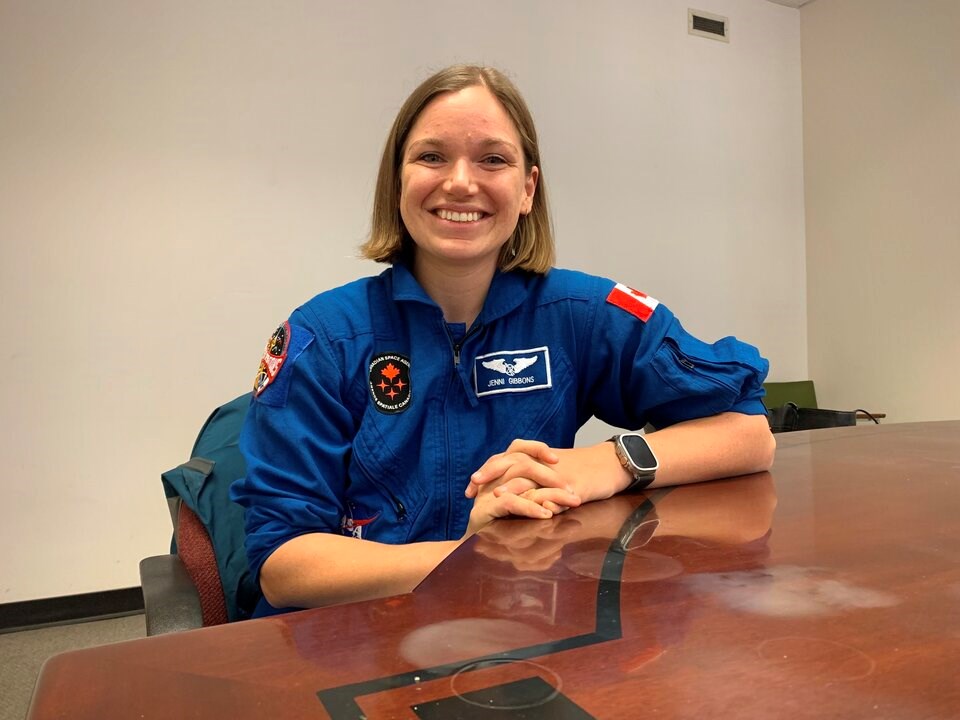A weightlifter, rock lover, engineer and now astronaut — at 36, Jenni Gibbons describes herself with an air of humility suited for the backup on an upcoming mission that will herald humanity’s return to the moon.
In 2016, Gibbons was among two candidates to pass through the Canadian Space Agency’s astronaut selection program. At the time, she beat out nearly to join an elite group that will one day venture into space.
Today, she is poised to take fellow Canadian astronaut Jeremy Hansen’s seat on NASA's upcoming Artemis II mission, but only if something unexpected occurs before launch.
In an interview with Glacier Media, which has been edited for length and clarity, Gibbons described her path to becoming the third Canadian woman to become an astronaut, the job's ups and downs and why space exploration matters as the world lurches through an uncertain moment.
Where did it all begin?
We moved around a little bit when I was younger. I went to high school in Calgary, and then by the time I went to university [at McGill in Montreal] my family actually moved to Comox on Vancouver Island. I adore Comox.
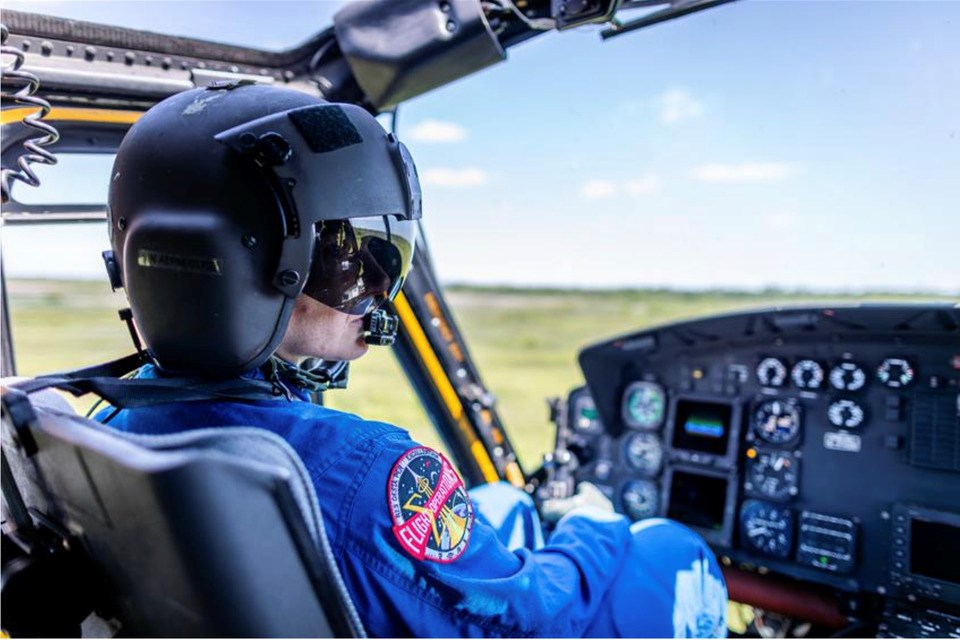
When did the idea of becoming an astronaut start for you?
There was definitely a time period where space was at the forefront of what I thought was the coolest possible job, and that was when I was really young.
Roberta Bondar flew in 1992, so I was three or four at that time. I remember my mom making a really big deal out of it. We had a scrapbook that we built of news clippings from her mission that my mom thankfully saved. We went to a science centre, where I built a little rocket ship, that she also saved.
I was also really into geology. I loved this idea of planetary geology and collecting rocks like every kid does. As my life went on, I started to realize what other opportunities were available.
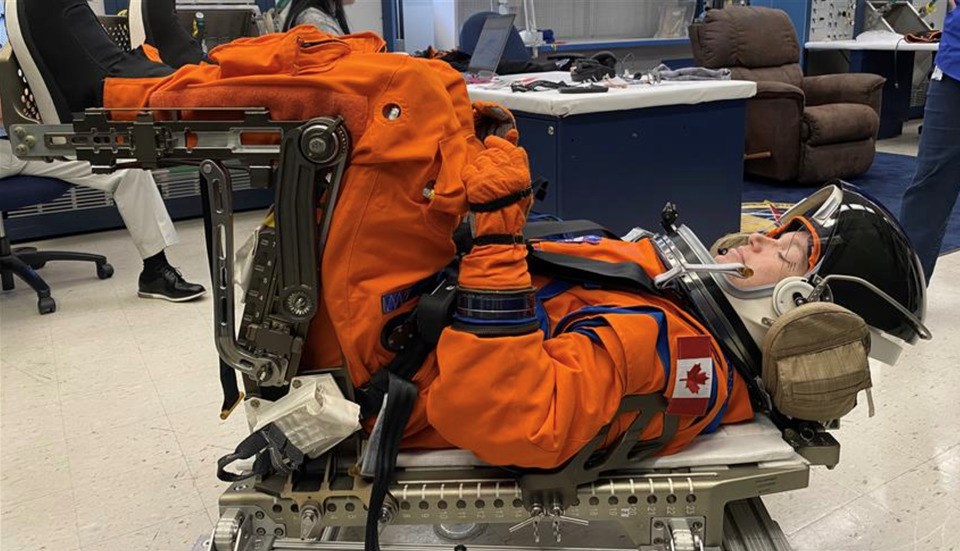
[Now in university], I was exploring other things. I had this amazing professor who's still at McGill, still teaching, and he did thermodynamics and combustion.
And I just thought, I love this research world of studying fire, something we're so familiar with, and we use so much, but we still have so much to learn about it.
After McGill, you do your PhD in combustion and become an assistant professor at Cambridge in the United Kingdom. When do you decide, 'I want to go for it?'
It wasn't until I got that job — I was like, this is the job I'm gonna have forever — that the Canadian Space Agency announced they were recruiting astronauts.
The application and the recruitment process… I think that was really formative. You're given minimal instructions, and you're under pressure to complete the task physically, psychologically, mentally.
I was in my office at the University of Cambridge in the Department of Engineering, when I got the call. It was just in advance of Canada Day.
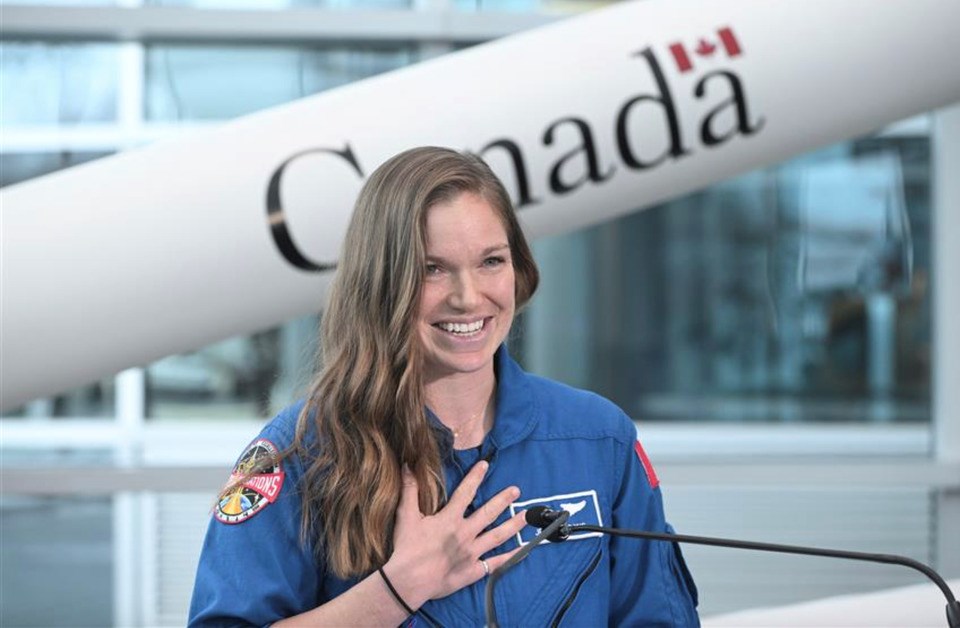
What happened after they chose you and you get sent to basic training in Houston, Texas?
You learn how to fly airplanes. You have to really practice that quick decision-making and handling situations under pressure.
You learn robotics, operating . You learn how to do a space walk, which is very physically challenging… [It happens] underwater in a pool where we can really simulate the apparent weightlessness that you feel on the International Space Station.
The pool, we [also] use that for water survival, where we have simulated weather and you have to get out of your spacecraft and swim to a raft in your space suit and call for help.
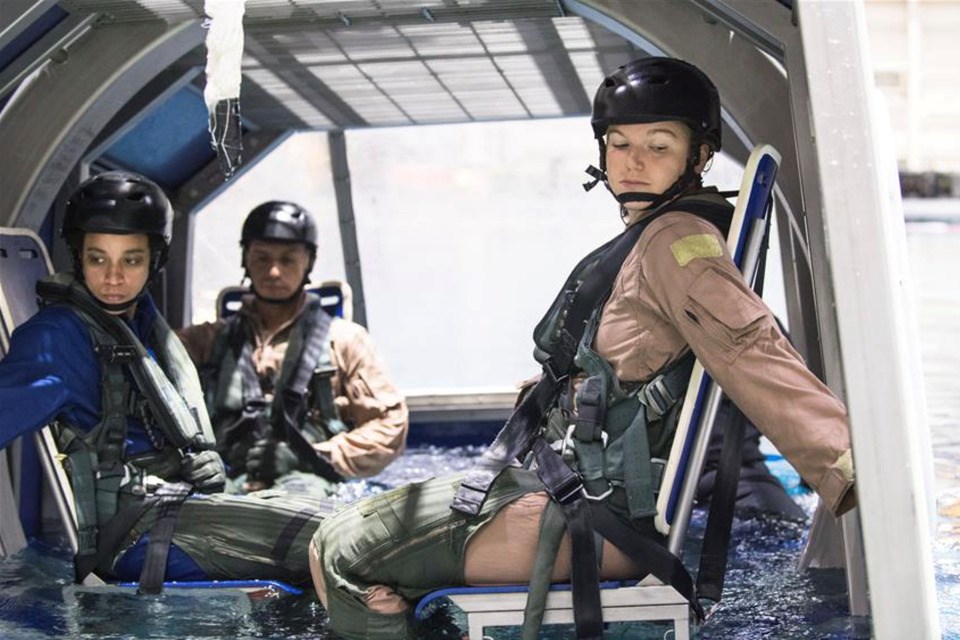
We have simulators that function with all of the software that supports the spacecraft, and you're speaking to mission control, and you have malfunctions that you have to respond to, as does the ground team.
We learn Russian so that we can communicate with our cosmonaut partners. And we learn every system on the International Space Station — how it functions and how to fix it if it breaks.
And then there are simulations that are out in the field, so geology simulations. We go to Arizona, we go to Iceland, and we actually go to northern Labrador in Canada to look at this amazing crater, which is a great lunar analog, because it's the same type of rocks on the south pole of the moon.
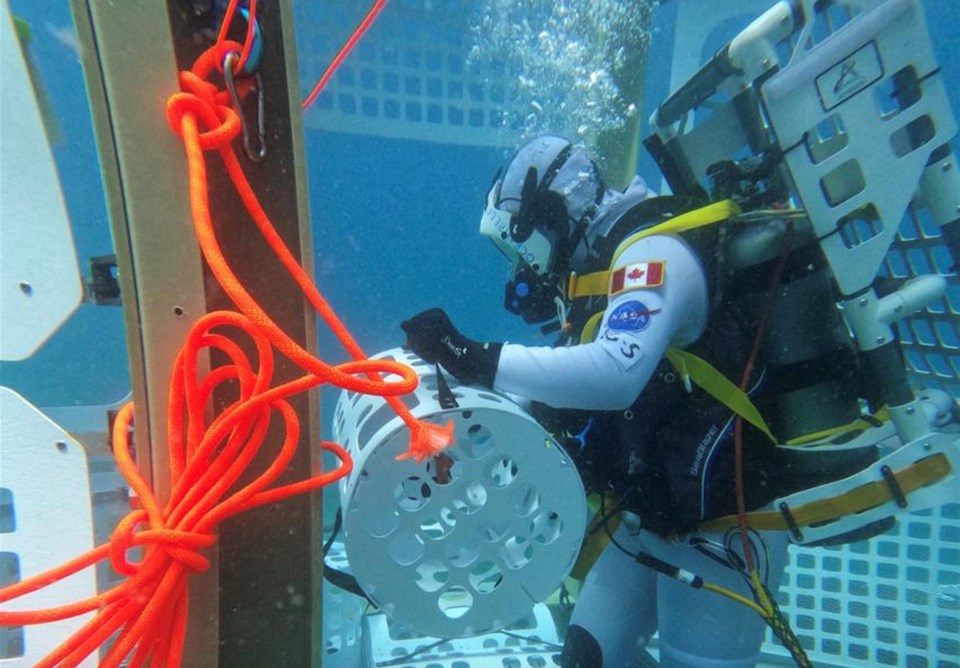
Today, you're a backup for Canadian astronaut Jeremy Hansen. What does that mean?
It's a great question, because we don't have backups very often anymore. We had them a lot previously, in Apollo days. But yeah, it's kind of a rare concept now.
We're both doing the training for the flight. If everything goes exactly as planned, Jeremy will fly on the mission.
Right choice for this mission? Absolutely. He's going to be a fantastic astronaut to fill that Canadian seat.
I will be supporting the mission from the ground. So there's a couple of roles there. One is called an astronaut support person, which is the person who buckles the crew into the space capsule prior to launch, into the Orion [spacecraft] and prepares them for launch.
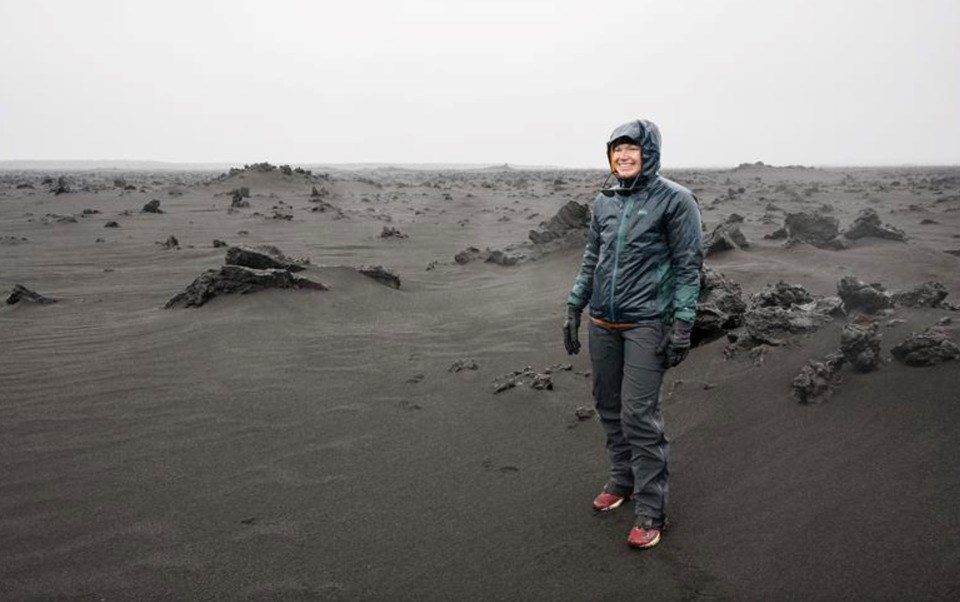
Another role is CAPCOM, so being the voice in mission control that's talking to the astronauts in the capsule when they're either ascending — so powered flight, launching, going around the Earth into low earth orbit, higher earth orbit, and then we have this really big burn called the trans-lunar injection, which is the burn where we decide whether we're going to the moon or not.
Why did you give up the life you had to become an astronaut?
I was really inspired by space. I've always been proud that Canada is a space-faring nation, and I really believed in the money that we put into space.
I think we just get such a return on investment, not only the actual return that we get by investing in the space economy, but we also learn just a tremendous amount about how to improve technologies and improve lives here on Earth.
I love my job. I get to work with people who are hyper-passionate. They love what they do, especially working on lunar missions. They've wanted to do this their whole lives, and they've been inspired by Apollo. Now, they finally get the chance to do it.
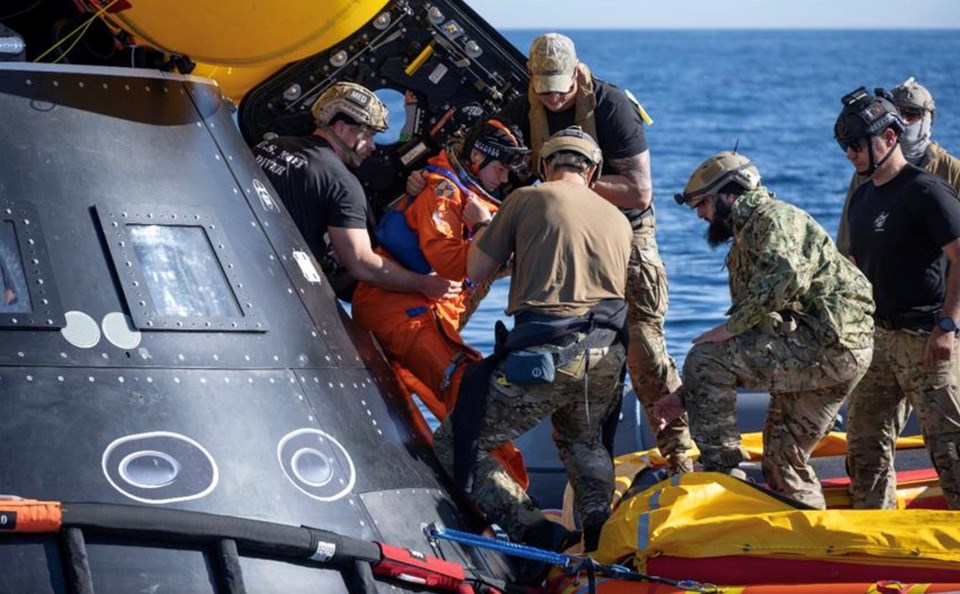
As backup, does that mean that you're first in line for the next mission?
Well, it's uncertain. We don't really know. We have a couple of missions coming up. I am next in line for flight. Joshua Kutryk [who the CSA selected alongside Gibbons in 2017] will most likely fly to the International Space Station pretty soon, and Jeremy's primed for this flight.
Next up, I'm not sure what mission it'll be. But yep, I’m next up. It's just up to someone who has a higher pay grade than me to decide what this is.
We’re at a volatile political moment in the world right now. There are multiple wars involving big powers. We have a lot of work to do to stem the evolving crisis of climate change. What do you tell people who look at spaceflight in this day and age and say, 'Why are we putting this much money into an endeavour that might not solve these huge problems?'
It's a good question and an important question. I think people should ask it, because it will trigger them to investigate what space actually does for them. That's my hope.
We're dealing with a lot. We're dealing with a changing climate. We are dealing with crises in affordability across the country. We need to reduce poverty, provide clean water and clean food for people. One way that you solve every one of those problems is through space.
You're keeping people alive when you send them to space. It requires food security. It requires clean water. It requires technological development and remote medical kits to keep them alive. It requires the miniaturization of electronics. It requires economic stimulation that creates jobs.
If you think about what makes Canada so unique, we have this enormous, beautiful, huge land mass, and our population is sparse. To take the heartbeat and learn about our own country, one of the only ways that we can do it is by going to space and by doing Earth observation activities in low earth orbit.
That might not be human space flight, but those are space assets. The way we look at our forests, the way we monitor our ice, the way we track wildfires, the way that we keep people safe, the way we provide them food in the morning, the way we communicate — all of that is connected and enabled entirely by space.
Now for some hard questions. Your grades in high school?
Good in subjects where I was inspired — once I found what I really wanted to do. Good because I worked hard at it.
Favourite sci-fi movie?
Alien.
What do you do to unwind?
Lift weights or spend time with my family.
Best thing about being an astronaut?
The people.
Hardest thing about being an astronaut?
Being away from home.
Most unexpected thing as an astronaut?
The emphasis on expeditionary skills — being a good person, being easy to get along with, learning to lead, learning to follow.
Favourite space food?
Curry.
Thoughts on space toilets?
Necessary.
The one non-essential item you'd bring to space?
Something sentimental. I don't know what it would be. [My family] would choose.
Your ideal future space mission?
I don't have to be on it, but I would love for Canada to send someone to the moon.
Earthly comforts you'd miss most?
Salad.
